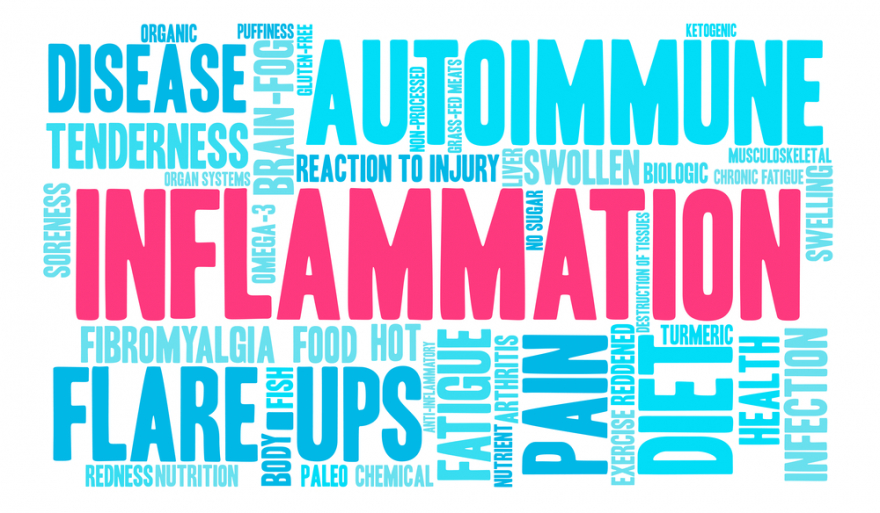|
Upheaval and Its Physical Effects on Your Body, Mind, and Spirit
Rev. Dr. Kitty Boitnott, NBCT, RScP
Heart-Centered Career Transition and Job Search Coach | Stress Management Coach
This is a continuation of the series on the effects that upheaval can create in one's life. Last week, I spoke to the emotional impact that a major disruption in your life can have. This week, I write about the physical effects you may feel when you are amid a major life change like the death of a loved one, the loss or a job, or, yes, dealing with the fallout of a global pandemic.
The effects on mental health are nothing short of traumatic when it comes to some of the events in our lives that cause a disturbance in our routines and outlooks. Some people have long-lasting emotional reactions to things that happen to them. People returning from war zones are not the only ones who suffer from PTSD, after all. But there are also physical effects that occur at the moment of the event and can last for days, weeks, or months afterward. They can even precipitate an illness or disease that occurs years later.
Lightheadedness in the Moment You Experience the Event
Feeling a little dizzy, even feeling a little faint, is normal, especially at the beginning of a disruptive event in your life. When a person is extremely stressed, they tend to forget to breathe correctly. They may breathe too shallowly to get enough oxygen into the lungs and the body. A lack of oxygen can create a sensation of lightheadedness. The good news is that this effect isn't harmful in the long run. But it can make you feel uncomfortable and unstable at the time that it's happening.
Shaking Uncontrollably During or After the Event
At the moment a crisis occurs, you go straight into a "fight or flight" response. Your amygdala, the reptilian part of your brain, pumps a great deal of adrenaline into your bloodstream to help give you the strength you need to manage the stressful event.
Eventually, the adrenaline begins to dissipate, leaving your body trying to process the shift in your body's chemistry. As you balance out, you may experience physical shaking. This may be a signal of the onset of shock as your body overcorrects itself.
Difficulty Breathing During the Initial Event
Sometimes being able to catch your breath at all can be difficult in the moment of terrific stress. This is especially true if you are experiencing panic or an anxiety attack. Without a conscious focus on how you're breathing, you might even start to hyperventilate. This also causes lightheadedness.
Upset Stomach During and After the Event

Digestion is an immediate and uncontrollable response to acute stress. Digestion issues can manifest in abdominal pain which can make eating difficult. It can even cause you to throw up or experience a sudden onset of irritable bowels. If you are dealing with a stressful event, it is important that you eat light meals frequently in an effort to avoid overloading your system with a lot of heavy food to process.
If the upset stomach continues for more than a few days or a couple of weeks, you may want to consult your physician about what you can do to ease your discomfort.
Changes in Sleep During and After a Major Life Event
A crisis causes stress which can lead to a sense of exhaustion. You may experience an onset of nightmares. You may also experience restless sleep. That means you wake up feeling like they haven't slept at all because you haven't gotten the critical REM sleep you need to feel rested.
Some people hide in sleep by sleeping more than usual. These people have trouble staying awake at all. Sleeping a lot to avoid dealing with the problems that occur with the upheaval in your life may be a sign of depression, also. If you are sleeping more than usual and still feel exhausted, it may be time to talk to someone and get help.
Even though oversleeping is a common reaction to upheaval, the most frequent response to acute and chronic stress is insomnia. Most people have trouble falling asleep at all when they are in the midst of a major stress event. Their brains can't shut down, and they can't relax enough to even go to sleep, just less stay asleep.
Even when these people do fall asleep, they will be hyper-vigilant. They wake up to any sound or outside stimuli. Regardless of which type of person you are, you can expect your sleep to be affected somehow during a major upheaval in your life.
Headaches Caused by Stress
How can you concentrate on what to do next when you have a headache? Headaches brought on by stress, including migraines, are not uncommon during an upheaval. Again, if they become consistent and you have trouble getting relief from over the counter medications, see your physician.
Inflammation in the Body

Your entire body reacts to stress whether you realize it or not. When you're in a crisis, it's not uncommon to note extra aches and pains in your body. If you are already suffering from chronic pain, you'll find these symptoms are magnified. Lupus, Rheumatoid Arthritis, Fibromyalgia, and other auto-immune disorders are commonly exacerbated by stress, so if you suffer from any of those ailments, take special care of yourself during a stressful event.
Loss of Appetite/Increased Appetite
When experiencing upheaval in their lives, people react in one of two ways. They may start eating everything in sight. Or they stop eating at all. Stress eating happens when we find comfort in food. We especially love foods that are high in sugar and fat. Those foods activate pleasure centers in the brain, releasing dopamine in our bloodstream and making us feel good--at least in the short term.
The inability to eat generally comes from digestive problems such as an upset stomach. It causes the loss of desire for things that give pleasure. A lack of appetite may also be a symptom of depression.
You want to make sure these effects don't last long since you don't want to risk becoming malnourished.
Neither of these reactions will be healthy over the long-term. Overeating for comfort will cause weight gain that can be unhealthy and cause problems like diabetes or high blood pressure. Undereating can cause you to lose important nutrients that you need for good health. Be mindful of your eating patterns and try to adjust them to healthy habits as soon as you can after a life-changing event.
Sex
When they're already so preoccupied with other things that are going on in their lives, is it any wonder many people lose interest in sex? Or perhaps worse--they may have trouble performing when they try to engage in intimacy which causes a whole host of other issues. Problems with sex ranging across the board may arise when you are overly stressed because of a major upheaval in your life.
While some people may choose to avoid intimacy, others may attempt to cope with their pain through increased sexual encounters with strangers. That reaction could lead to risky behavior, exposure to STD's, or unwanted pregnancy.
Your immune system is what keeps you healthy when exposed to germs, viruses, or bacteria. Studies have shown that people under stress tend to knock their immune system out of whack. Frequently, people experiencing upheaval are more prone to illness. And it may take longer to heal when they're sick or injured.
Bone Density
In the long-term, being in a high-stress situation can even impact your bone density. You experience less calcium absorption. And that makes you more prone to issues related to your bone health as you grow older. Osteoporosis can eventually cause your bones to become brittle and fracture more easily.
Pre-Existing Conditions
Across the board, you're going to find any chronic illness is going to be exacerbated by upheaval in your life. In diabetes, you'll find it harder to regulate your blood sugar during a crisis. That may be due to changing eating patterns, but it can also be in reaction to how your body processes insulin as a stress response.
Heart conditions can also become exacerbated. Conditions that involve inflammation will leave you feeling more pain. Whatever you're already suffering is going to take a hit and leave you feeling worse.
As you can see, the physical ramifications of upheaval can be every bit as difficult to process as the emotional. Try to find a healthy and effective way to deal with all the unavoidable impact of upheaval in your life on your body, mind, and spirit.
Until next time.
P. S.
If you have lost (or quit) your job because of the pandemic, (or perhaps you are thinking about quitting) you need to sit in on this free webinar workshop.
It's entitled, "Design Your Career in a Post-Pandemic World."
This workshop is for you if you feel that it's time to reinvent yourself or it's time for something new. You are open to new opportunities.
I am going to talk about how she thinks the post-pandemic world is going to need people with innovation, creativity, and thoughtfulness.
Sign up to learn more. Register: https://event.webinarjam.com/register/17/lqz9vik and select the date and time you wish to attend. I am going to be talking about how you can take control of your life and design a brand new career in the post-pandemic world.There will be two live, in-person presentations: Saturday, September 17th at 1:00 PM EST ORSatruday September 19th at 2:00 PM EST
I hope to see you there!
|